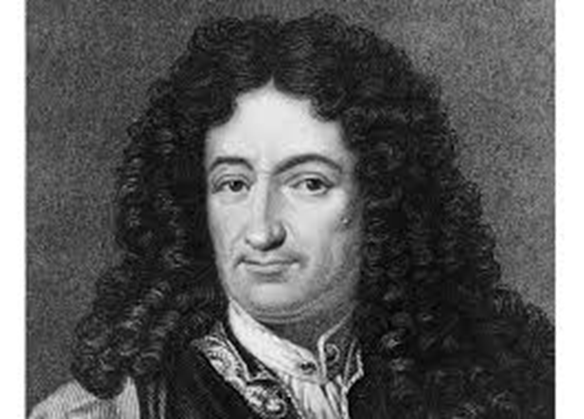Rene Descartes was a famous French philosopher, mathematician and physicist. He made an important contribution to the development of modern mathematics, and was regarded as “the father of analytic geometry” because of formulating the coordinate geometry system. As the founder of early modern western philosophy, he was also the pioneer of materialism, who had raised up the assertion of “universal doubt”. His thoughts deeply influenced the next few generations, and laid the foundation for the European rationalism.
Philosophy as the noumenon, mathematics as the use
Probably the best-known thing for Descartes is his accomplishment for being a mathematician. His mathematical achievement mainly concentrated in geometry. Back then,algebra was just an emerging science, with geometric thinking still dominating the minds of mathematicians. Before Descartes, geometry and algebra were two different fields in mathematics. Standing at the height of natural philosophy, Descartes believed that Greek geometry depended too much on figures and have constrained people’s imagination. To algebra which was in fashion at the time, he felt that it was entirely subordinated to laws and formulas, and could not be a science to improve intelligence. Therefore, he proposed that we must combine the advantage between geometry and algebra to create a “real mathematics”. The center of Descartes’ thought is to reduce the problem of geometry in algebraic form, using algebraic method to calculate and prove, so as to achieve the ultimate goal of solving geometric problems. Under this idea, he founded “analytic geometry”.
In 1637, Descartes published Geometry, and established the plane Cartesian coordinate system. He used it to determine the location of a point, and describe the points in space. The emergence of analytic geometry changed the trend of separation between algebra and geometry since ancient Greece, unified the “number” and “shape”, and combined geometric curves with algebra equations. That the development of this corresponding relationship not only marks the beginning of the function concept, but also indicates that variables enter into mathematics, which makes it came to a great turn——from constant mathematics to variable mathematics. Dialectics ran into mathematics, and with variables, differentiation and integration immediately became necessary. Descartes’ achievement opens the way for Newton and Leibniz to discover calculus, and also for a large number of mathematicians who have made new discoveries.
Descartes is a rationalist. Rationalism, as it implies, believed that knowledge is based on the use of reason and logic. In rationalist’s opinion, reason is more reliable than the senses. According to Descartes, human should be able to use mathematical methods — that is, reason – to conduct philosophical thoughts.
Axiomatization is a very important way of thinking in mathematics. Euclid’s Elements was the first deductive mathematics established by axiomatization in history. Setting out from the basic definitions, postulates and axioms, it deduced a large number of rich geometric theorems step by step, and laid the foundation of western mathematics. Descartes thought that we could also find some axioms of noumenon that could be used to establish the whole philosophy. He then discovered 4 rules from the subject of logic, algebra and geometry. These are:
- Never to accept anything for true which I did not clearly know to be such;
- To divide each of the difficulties under examination into as many parts as possible, and as might be necessary for its adequate solution;
- To conduct my thoughts in such order that, by commencing with objects the simplest and easiest to know, I might ascend by little and little, and, as it were, step by step, to the knowledge of the more complex;
- To make enumerations so complete, and reviews so general that I might be assured that nothing was omitted
“I think, therefore I am”
The philosophy thought and methodology of Descartes occupy more important position in his life. His philosophical thoughts had a great influence on the development of later philosophy and science.
Descartes’ philosophical proposition, adopting such “method of doubt”, is to verify the reliability of the source of knowledge. We can always be suspicious of everything around us, though there is only one thing we cannot doubt, and that is the existence of my own thoughts, for while I am doubting others, I cannot doubt my own thought at the same time. When I doubt myself, there must be someone who is conducting thinking, and as the subject, “I” cannot be doubted. This is not the subject “I” of the matter, but “I” of the mind. Thus, denying one’s own existence is self-contradictory.
Descartes also proved the existence of “God” from his own existence. Because the subject matter “I” cannot be doubted, there must be someone who makes me exist, and who makes me exist must also make all kinds of being exist. Therefore, to every other thing exist on earth, God will be the one and the only possible answer.
Bibliography:
1. Philosophy as the noumenon, mathematics as the use
